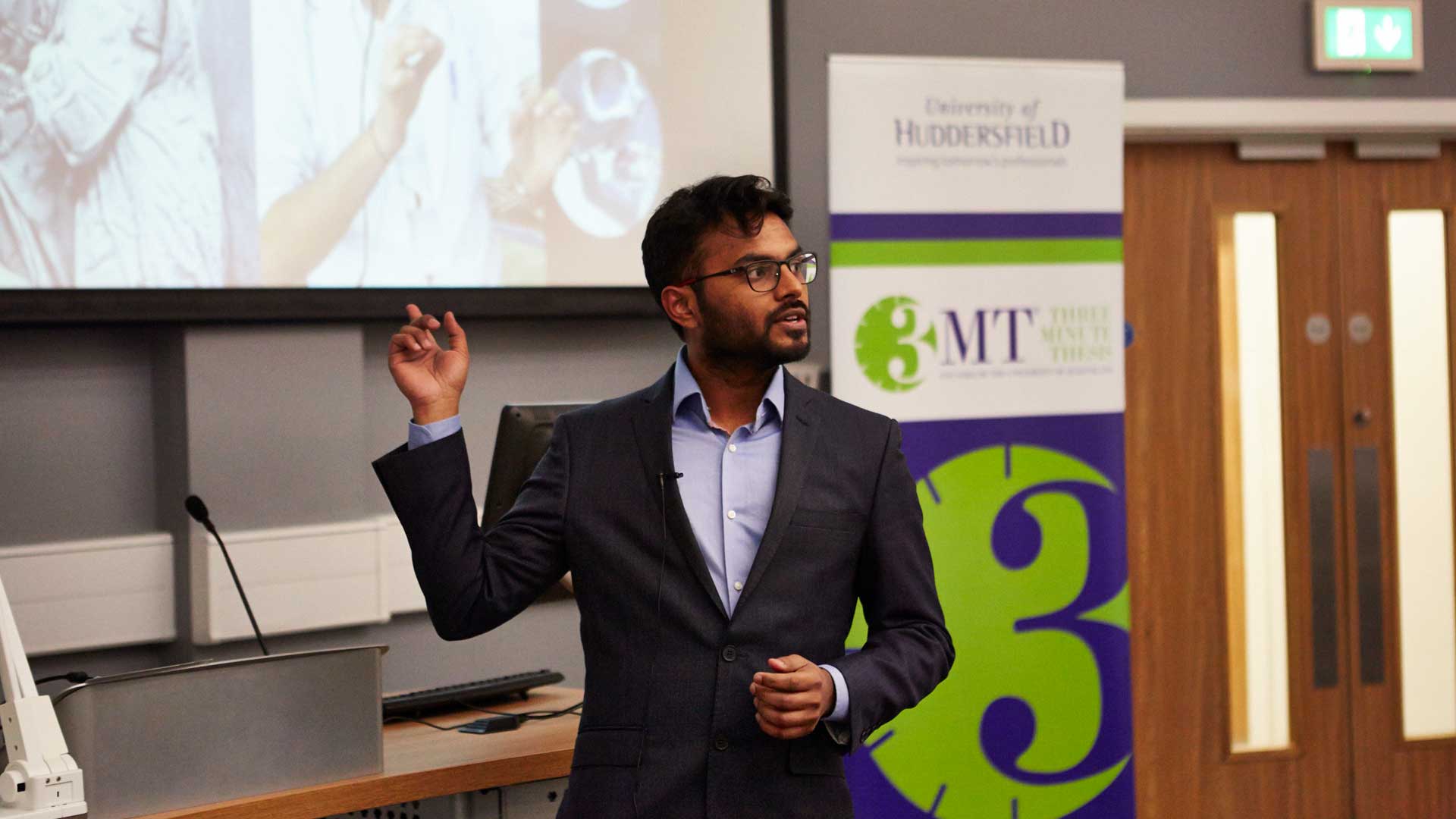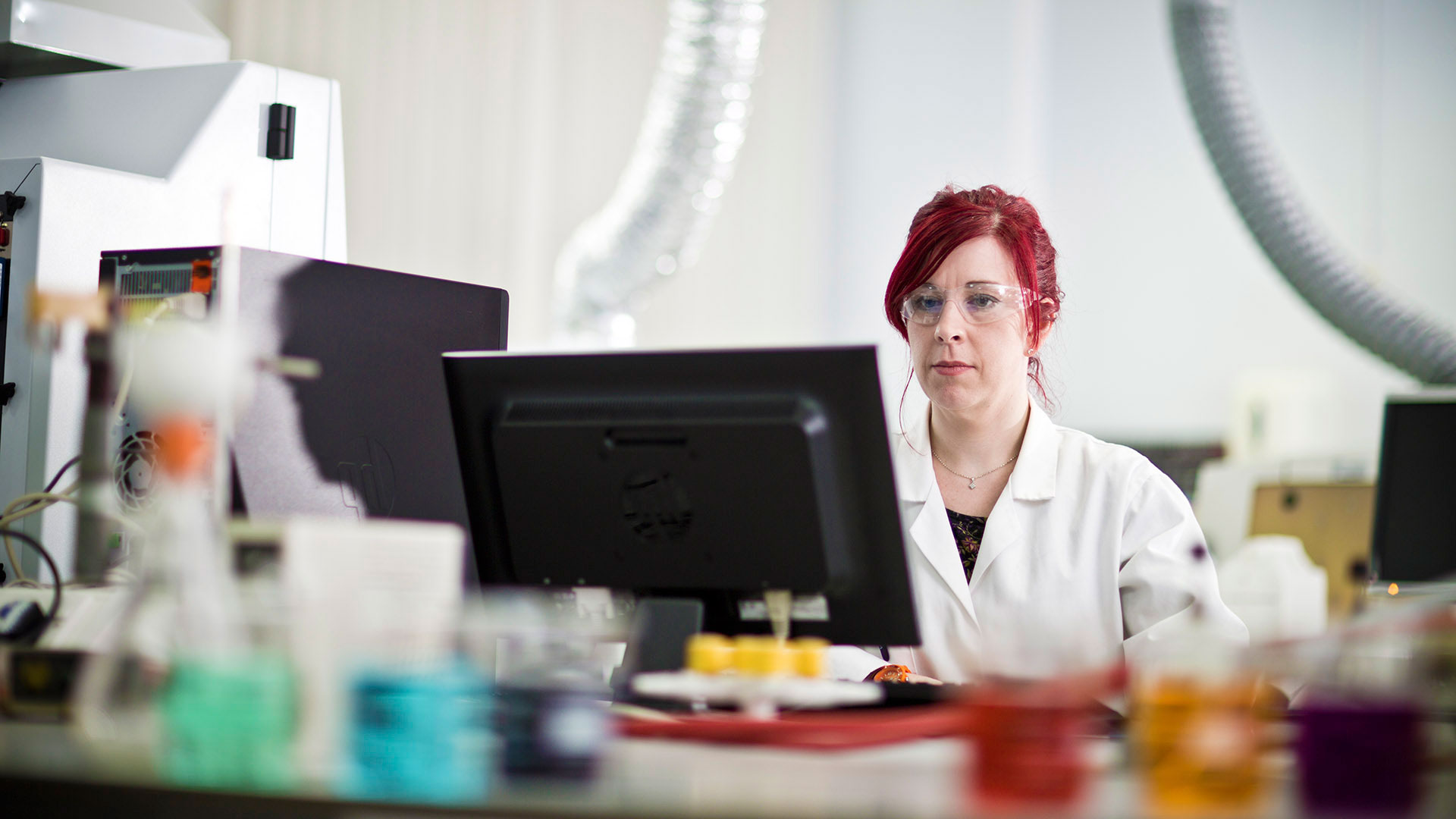Recognition of prior learning
Introduction
If you are currently completing a PhD at another institute, you may be allowed to transfer to us and complete the research at the University of Huddersfield (UoH). Successful transfer applicants will normally enrol at the same stage they were at in their previous institution.
In most cases, this will be because your current supervisor is transferring employment to the UoH or due to staff changes which result in inadequate expertise within your current supervisory team.
Before you transfer to us, you must have the agreement (from your current University) for the transfer of any data or completed research and confirmation that you have withdrawn from your current research programme.
If you are a current
How to apply
Transferring to us is a three-step process:
- You will need to apply through our normal application procedure.
- You will be required to provide a number of supporting documents.
- You will need to undertake an assessment to establish at what point you will be entering the programme.
More details can be found below.
The application process (step 1)
To make a formal application, please complete the Online research degree application form
Supporting documents (step 2)
In considering your application for the recognition of prior research we will normally require the following supporting documents:
- A letter of agreement from the previous institute for the transfer of any data or completed research and confirmation of the candidate’s withdrawal.
- A statement of rationale from the candidate detailing why they wish to transfer to UoH.
- A copy of the original approved research project.
- The title of the research project and the names and contact details of supervisors at the previous institution.
- A report from the applicant of how the research has progressed and a projected timeline for completion of the project (3,000-6,000 words) – see below for more details.
- The date of original enrolment and anticipated date of completion.
- The most recent progress report from the previous institution, which should confirm that the applicant has been progressing in accordance with the standard timescales for completion.
- In the case of international applicants, confirmation from the International Office that the applicant meets Home Office visa requirements.
- A short written statement from the proposed new supervisor/s confirming their willingness to supervise the project in its current form and their estimate of the remaining time needed for successful completion.
The assessment (step 3)
The admissions process will include an interview that will take the form of a viva. This is to ensure you have made sufficient progress to date to inform an accurate point of entry onto the programme.
The assessors will be two internal members of staff and will not include any members of your new proposed supervisory team.
The assessment can take place either in person or remotely by video conference.
In support of the application, the candidate must prepare a full progress report on the work undertaken to date. The progress report should typically:
- Be 3,000 to 6,000 words in length.
- Include a brief overview and discussion of the work already undertaken.
- Include a statement of intended further work, including details of the original contribution to knowledge which is likely to emerge.
- Include a statement of authenticity confirming the work is entirely that of the candidate and is correctly referenced.
- Include a sample of practice-based work, if relevant to the project.
- Include clarification on what data the candidate is transferring with and whether there are any outstanding data protection related issues.
In addition, at the discretion of the assessors, they may request previously completed research, undertaken to date, including draft chapters, for consideration as part of the assessment.
It is acceptable for the progress report to include work previously submitted for assessment of progression at another institution. However, there should be a clear indication of how the work has progressed since submission.
The assessment will take the following into consideration:
- The progression report provided by the candidate.
- The application completed by the candidate.
- The supporting documents as detailed above.
- A written statement from the proposed supervisor/s.
This assessment will take place before any offer to study is made.
What happens after your assessment
As part of the assessment, the assessors will complete the following Recognition of Prior Learning – Assessment report form. (link from media library) They will use their academic judgement to make a recommendation to their School’s Director of Graduate Education (or nominee) on what they believe is an appropriate entry point into the programme. You will normally be enrolled at the same stage you were at in your previous institution
The admission decision will be based on your performance in the assessment, the supporting documents you have provided and details you provided on your application.
The School’s Director of Graduate Education (or nominee) will be responsible for the final approval of the entry point onto the programme, following the recommendation from the assessors and the proposed supervisors’ statement.
At any point of the application process, the Director of Graduate Education (or nominee), can reject your application if it becomes apparent that the University are unable to resource the project, either due to supervisory availability, lack of facilities/resources or for any other reasonable reason. If this is the case, we will let you know why we had to make this decision.








